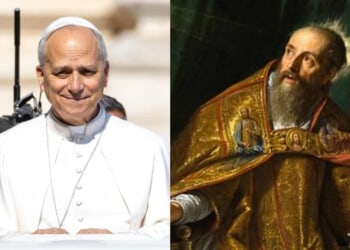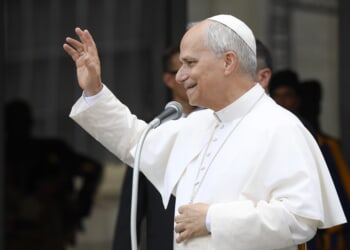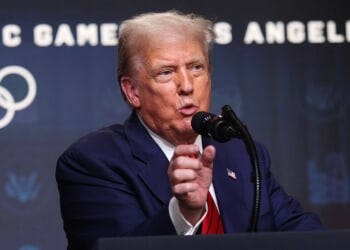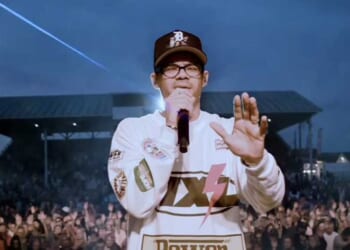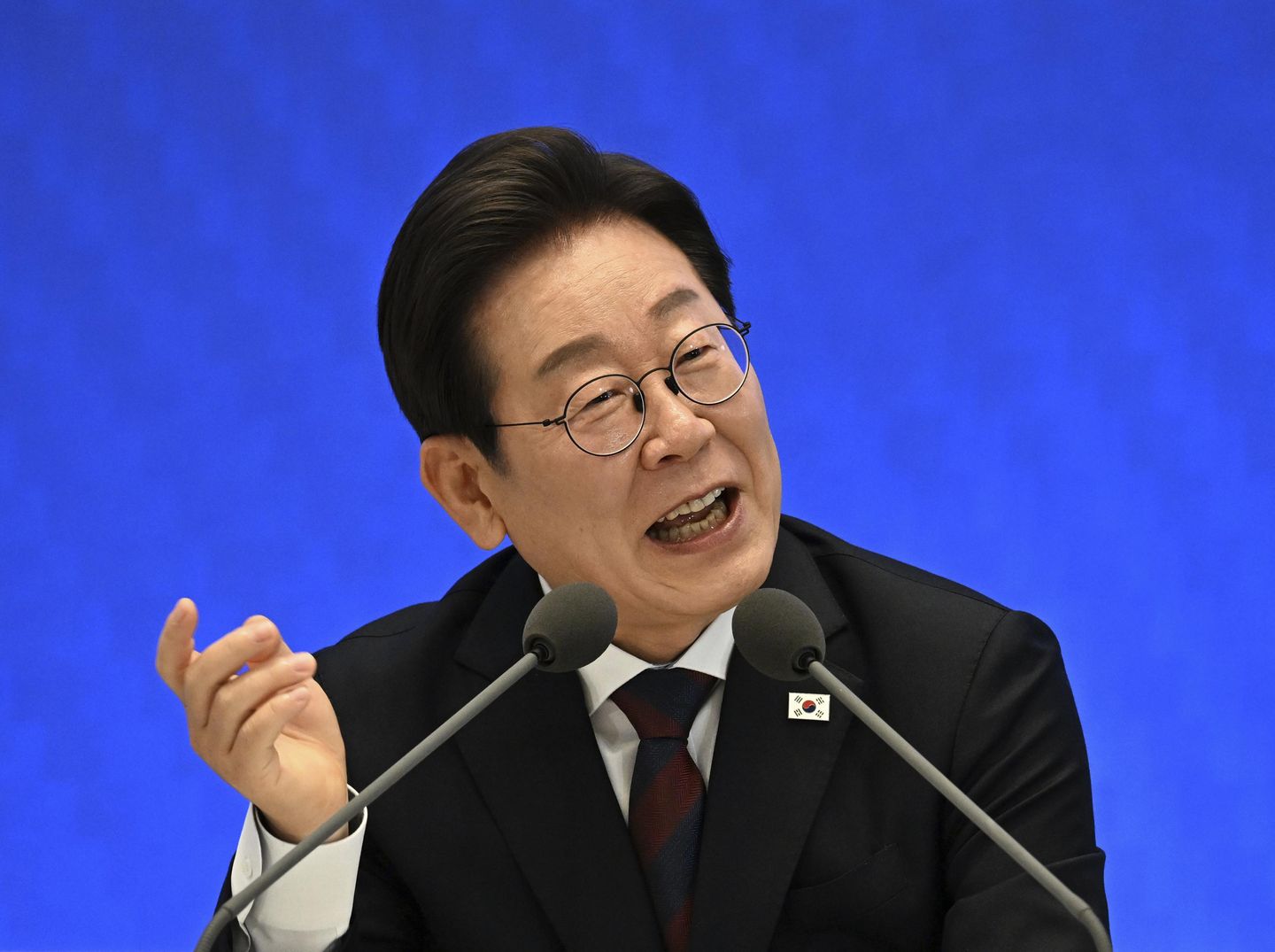
SEOUL, South Korea — President Lee Jae-myung was stunned by a viral video last month showing the mistreatment of a migrant laborer at a South Korean brick plant.
“I couldn’t believe my eyes,” Mr. Lee, 61, wrote July 24 on social media. He called the incident an “unacceptable act of violence against minorities and the vulnerable.”
In the video, a forklift operator lifts and moves another worker bound with plastic wrap to a pallet of bricks, drawing off-camera laughter.
Mr. Lee, who suffered a debilitating injury while working in a factory as a child, ordered an investigation and then visited the factory, which is notorious for industrial accidents.
SPC Group, the factory’s owner, had already announced sweeping new safety initiatives as part of its efforts to wriggle out of the gun sights of Mr. Lee, who is delivering on campaign promises to make businesses accountable for abusive labor and consumer practices.
It is not populist grandstanding but a potentially game-changing strategy that aims at “The Korean Discount.”
Under that rubric, South Korean stocks have been undervalued compared with global peers for decades. Some investors blame the undervaluation on the ever-present risks posed by North Korea, while others say the discount stems from dubious corporate governance.
South Korean conglomerates are globally admired but are notorious at home for founder-family privilege, managerial opacity and disinterest in shareholder rights.
Mr. Lee aims to add value by raising dividends.
He has vowed to stamp out white-collar crime by closing legal loopholes to ensure that penalties outweigh gains and by instituting a “one strike and you’re out” rule for malfeasances such as insider trading.
Preliminary legislation is working. In his first month in office, the benchmark KOSPI index stood at 2695 points. On Friday, it topped 3119, within reach of the 2021 historical high of 3316.
The potential is seismic. Distrusting capital markets, South Koreans have customarily invested in Seoul real estate, leading to huge disparities in home prices.
Mr. Lee offers hope to “ant investors,” retail punters known for their huge numbers and wee investments.
Promoting shareholder capitalism is an unlikely policy direction for a politician who was, until recently, considered a hard-core leftist, but Mr. Lee is maintaining his shift into center-right territory, a move he proclaimed in February that upgraded his electability among the middle class.
Meet the president
Mr. Lee, a local politician before ascending to national stature, is hounded by allegations including illegally sending funds to North Korea and lying to the electorate. Suicides among his aides have raised eyebrows.
Widely despised by conservatives, he nevertheless won the June election with a solid 49.42% of the vote. He succeeded impeached President Yoon Suk Yeol after personally combating Mr. Yoon’s December martial law ploy.
Fortified by presidential immunity against his alleged crimes, and with his Democratic Party of Korea holding a majority in the National Assembly, he has a powerful mandate through the next legislative election in 2028.
Some fear Mr. Lee is trying to coerce the judiciary. Business circles resent a bill extending legal protection to strikers, and concerns simmer over some of his personnel appointments.
However, a late July opinion poll showed he had a 60.1% public approval rating.
Middle-of-the-road citizens, who surveys find are massive supporters of the U.S. alliance, are likely happy that he has finally been invited to Washington.
That calmed jitters that South Korea was being overlooked amid President Trump’s prioritization of deals with larger economies such as China, the European Union, Japan and Britain.
A Washington win
Mr. Trump’s announcement Wednesday of a trade deal with South Korea on par with Japan’s deal — a 15% tariff on Korean exports to the U.S. — was accompanied by an invitation to Mr. Lee to summit in the next two weeks.
Trade talks had been under wraps. After the deal was reached, an upbeat Mr. Lee said, “We have achieved significant results.”
Speaking to government officials, he compared himself to a duck trying not to get dragged downstream by currents. He revealed that he did not speak up during negotiations because it might have “had a negative impact.”
Mr. Lee has surprised in other areas.
Although he has been noted for anti-Japanese rhetoric, he has maintained solid relations with Tokyo. This is a rare carryover from Mr. Yoon, whose flagship foreign policy was upgrading Tokyo ties.
Japanese Prime Minister Shigeru Ishiba has reciprocated. He attended a reception at the Korean Embassy in Tokyo last month and received Mr. Lee’s foreign minister Wednesday.
Seoul-Tokyo amity pleases Washington’s security sphere, which has long sought trilateral defense ties.
Mr. Lee’s long-held hopes for better relations with North Korea look shakier.
One of his first policies was silencing Seoul’s cross-border propaganda broadcasts. The North reciprocated the following day. Messaging since has been less hopeful.
Mr. Lee “is no different from his predecessor in blindly adhering to the South Korea-U.S. alliance and pursuing confrontation,” Kim Yo-jong, influential sister of national leader Kim Jong-un, said in a state media commentary last week. “There will be no chance of us sitting down with South Korea for any discussions.”
That restates her brother’s 2023 position, which nixed hopes of peaceful reunification, dismantled related agencies and called the Koreas “belligerent states.”
She followed up the next day on the same channel.
“If the U.S. fails to accept the changed reality and persists in the failed past, the [North Korea]-U.S. meeting will remain as a ‘hope’ of the U.S. side,” she said.
It is unclear whether the “changed reality” refers to Pyongyang’s expanded nuclear arsenal since the 2018-2019 Kim-Trump summits or its cozy new relationship with Moscow, which offers benefits that reduce the necessity for Seoul and Washington ties.
North Korea is “doing what it always does,” said Yang Uk, a security expert with Seoul’s Asan Institute. “They can sow controversy through one or two commentaries; it’s a strategic game for them.”
Mr. Yang said he feared the Seoul-Washington relationship might “go south,” but Mr. Lee’s trade negotiators delivered. Still, he was concerned about what might happen when Mr. Lee meets Mr. Trump.
Washington is expected to compel Seoul to take on a bigger role in conventional defense. Under Mr. Lee, South Korea has revived long-delayed plans to remove its troops from under U.S. command in wartime.
That means Mr. Lee must negotiate a quid pro quo, Mr. Yang suggested.
“If Seoul were to take over the burden for conventional deterrence, the U.S. must take a bigger step on nuclear deterrence,” he said.





![Gavin Newsom Threatens to 'Punch These Sons of B*thces in the Mouth' [WATCH]](https://www.right2024.com/wp-content/uploads/2025/08/Gavin-Newsom-Threatens-to-Punch-These-Sons-of-Bthces-in-350x250.jpg)
![ICE Arrests Illegal Alien Influencer During Her Livestream in Los Angeles: ‘You Bet We Did’ [WATCH]](https://www.right2024.com/wp-content/uploads/2025/08/ICE-Arrests-Illegal-Alien-Influencer-During-Her-Livestream-in-Los-350x250.jpg)




